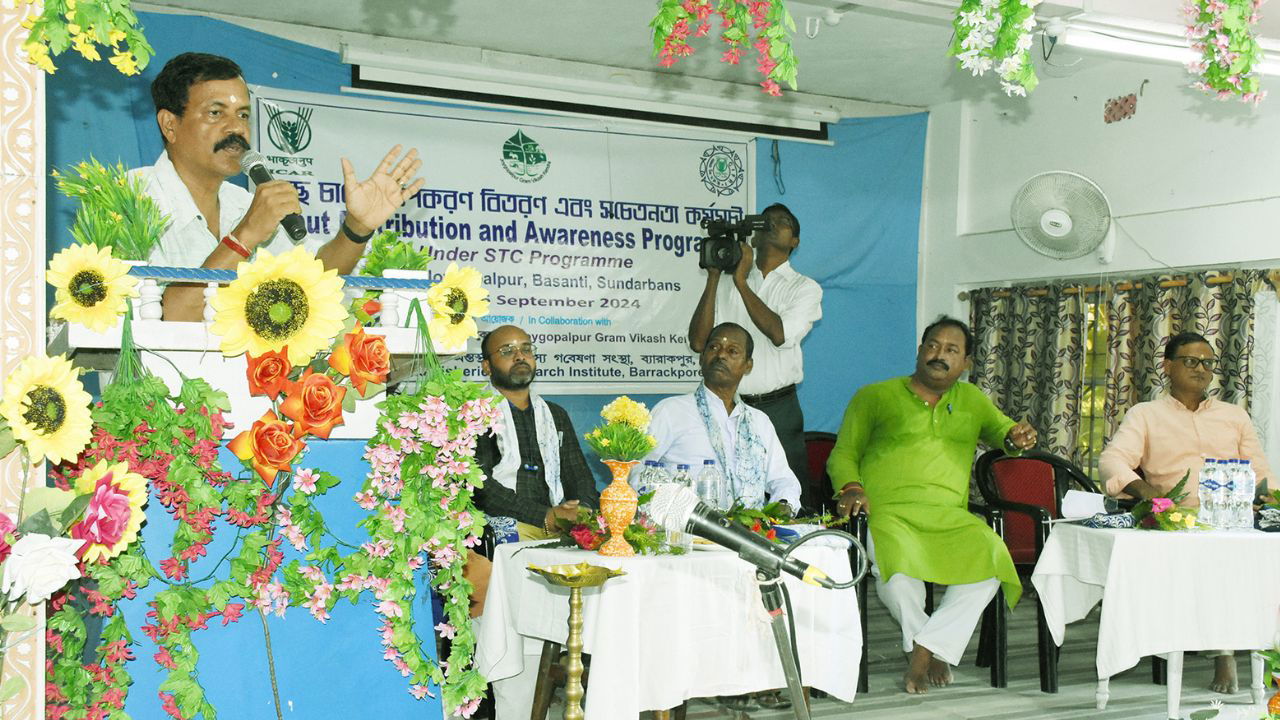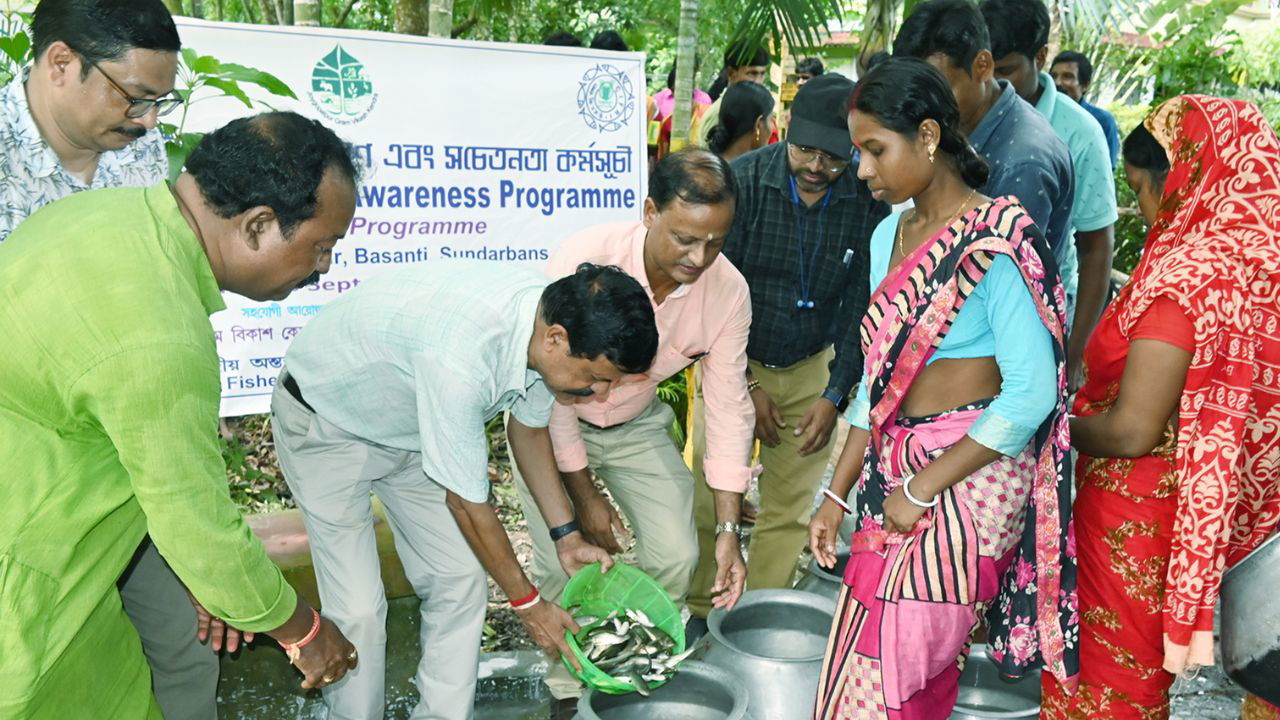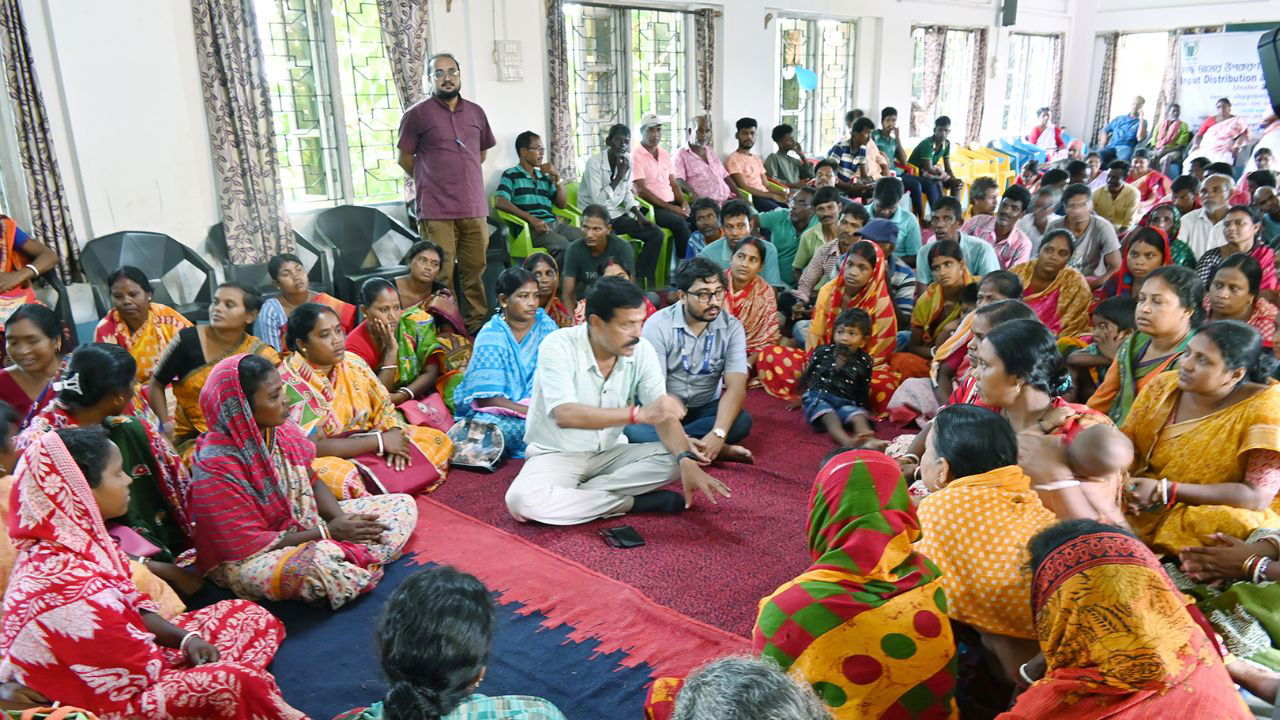
The Sundarbans, a UNESCO World Heritage Site, is home to both unique mangrove forests and a significant rural tribal population. These communities face challenges in education, healthcare, livelihoods, and access to resources. To address these issues, an ‘Input Distribution cum Awareness Programme’ was organized to provide fisheries inputs and training, promoting sustainable development and self-reliance through small-scale aquaculture. A training program for tribal fishers was held on September 6, 2024, in Joygopalpur, Basanti, Sundarbans.

This program was organized in collaboration with Joygopalpur Gram Vikas Kendra, part of the 'Scheduled Tribe Component.' The event saw the participation of various stakeholders, including local tribal community members, government officials, NGO representatives, and subject matter experts. Approximately 130 tribal fishers from various villages in the Basanti region attended, including men, women, and youth from the Santhal and Munda communities.
A series of participatory education events was held to raise knowledge about sustainable fish production methods and small-scale aquaculture. In order to improve aquacultural productivity and sustainability, Dr. B.K. Das, Director of CIFRI, offered advice on small-scale aquaculture practices, fish disease management, and SIF conservation strategies.
Dr. Arun Pandit, I/C Fisheries Economic Section, CIFRI, offered information on microfinance, self-help groups (SHGs), alternative livelihood choices, and vocational training in order to support economic empowerment. Following the awareness seminars, participants received supplies like fish feed and seed, which will enable them to put the knowledge they had learned into practice and enhance their standard of living.

The "Input Distribution cum Awareness Programme" was a major step in resolving the issues these communities faced by encouraging self-reliance among rural tribals in the Sundarbans. The program effectively blended resource distribution with awareness-raising, giving participants the skills and information needed for sustainable development. In order to build on this accomplishment and guarantee the long-term empowerment of the tribal populations of the Sundarbans, stakeholders will need to collaborate and exert ongoing effort.
















